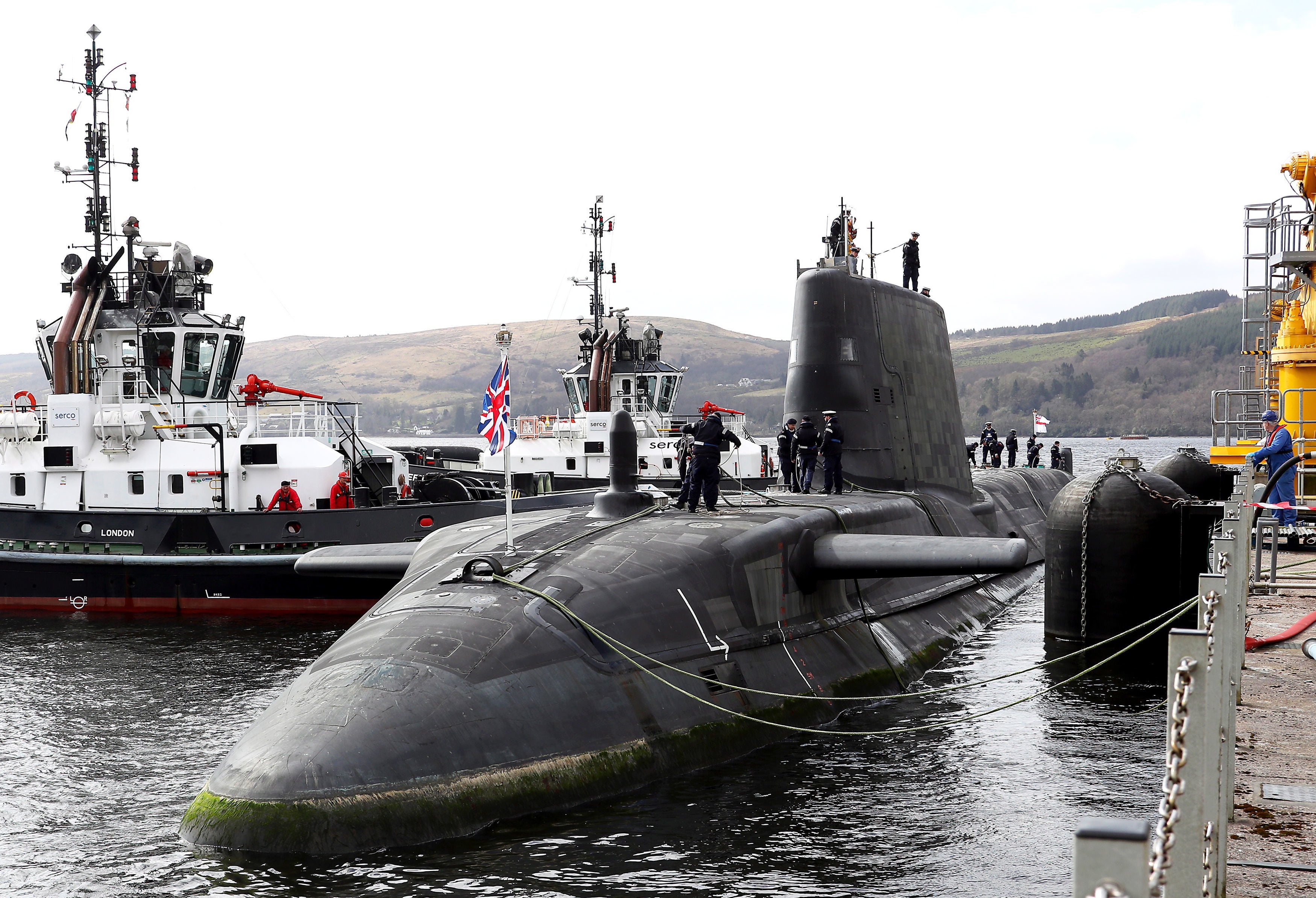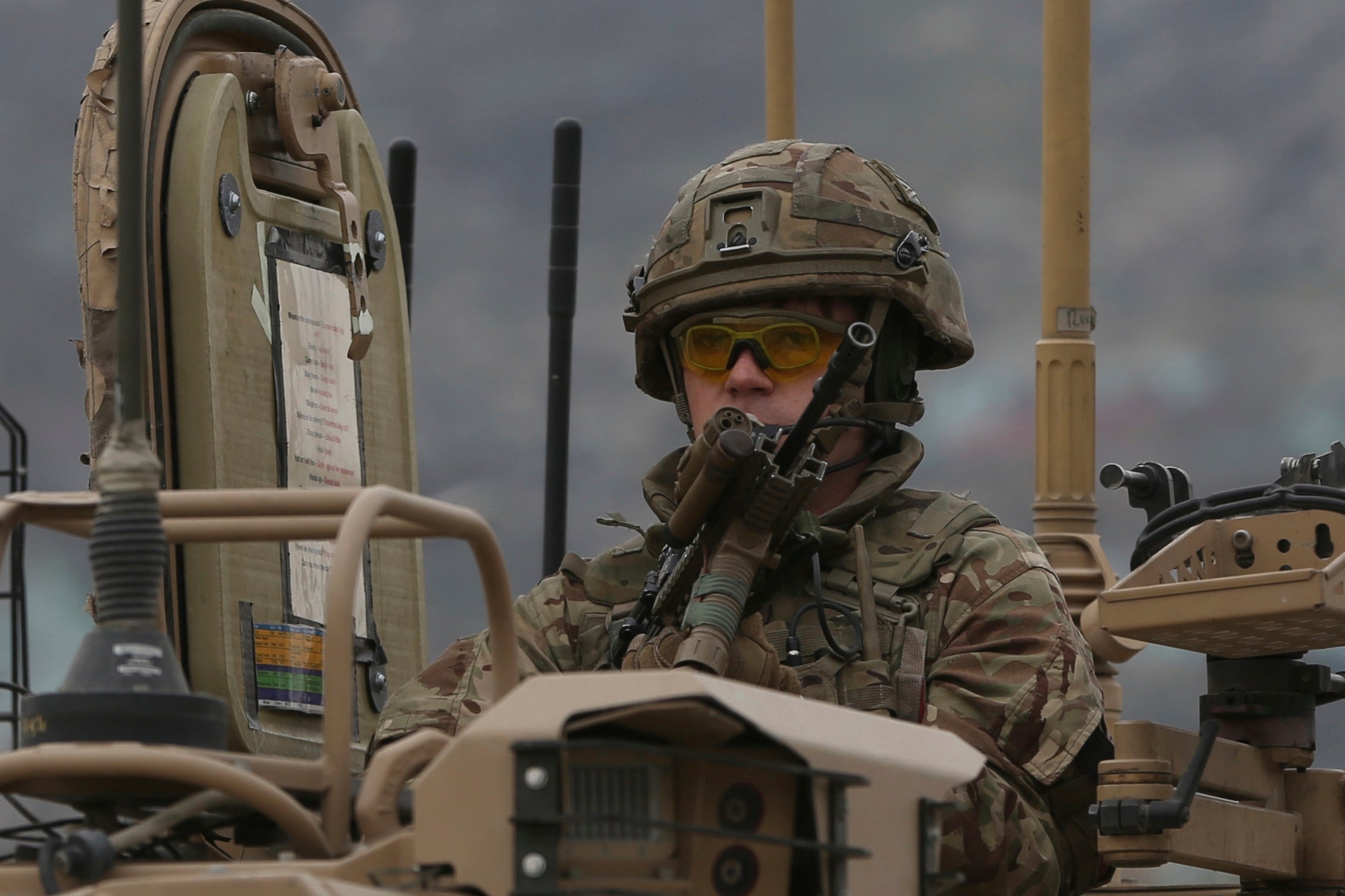Britain’s military not prepared for an all-out war, MPs warn
Ministers urged to address stockpile shortages and recruitment crisis in armed forces to ensure UK’s security
Your support helps us to tell the story
From reproductive rights to climate change to Big Tech, The Independent is on the ground when the story is developing. Whether it's investigating the financials of Elon Musk's pro-Trump PAC or producing our latest documentary, 'The A Word', which shines a light on the American women fighting for reproductive rights, we know how important it is to parse out the facts from the messaging.
At such a critical moment in US history, we need reporters on the ground. Your donation allows us to keep sending journalists to speak to both sides of the story.
The Independent is trusted by Americans across the entire political spectrum. And unlike many other quality news outlets, we choose not to lock Americans out of our reporting and analysis with paywalls. We believe quality journalism should be available to everyone, paid for by those who can afford it.
Your support makes all the difference.The UK’s military is not sufficiently prepared to fight an all-out war, despite such readiness being a vital deterrent to Britain’s adversaries at a time of worsening global instability, MPs have warned.
Britain’s military will remain ill-prepared unless the government addresses stockpile shortages and the recruitment crisis currently hampering the armed forces, according to a new report by the House of Commons defence committee.
The military is “consistently overstretched”, with the “unrelenting pressure” on personnel exacerbating the crisis in recruitment and retention which is seeing more people leaving the armed forces than joining, MPs warned.

The sheer pace of current operations means that ministers risk “being unable to build true warfighting and strategic readiness”, which could threaten the security of the UK, cautioned the cross-party group of politicians.
They warned that efforts by the Ministry of Defence (MoD) to tackle the problem are not “being carried out at the required pace”.
The committee’s inquiry heard that the “hollowing out” of the armed forces since 2010 had undermined the UK’s warfighting resilience and that their reduction in size meant they would exhaust their capabilities “after the first couple of months of the engagement” in a peer-on-peer war.
It comes after defence secretary Grant Shapps warned that the world is “moving from a post-war to pre-war world” and the UK must ensure its “entire defence ecosystem is ready” to defend its homeland.
In another ominous intervention last month, the head of the army General Sir Patrick Sanders said Britain must be prepared to form a “citizen army” of tens of thousands in the event of war with countries such as Russia.

General Sir Patrick warned that his forces, including all reserves, would not be large enough to defend the UK if there was a war, and said it was essential for Britain to lay the foundations for “national mobilisation”.
Mr Shapps has insisted the size of the army will not dip below 73,000 under the Conservatives, amid growing concerns about further cuts to troop numbers.
In their new report, MPs urged ministers to ensure that the forces are not deprived of the resources, training and time needed to fight and win a high-intensity prolonged war. Readiness “is essential to effective deterrence to our adversaries” at a time of heightened geopolitical instability, they said.
Sir Jeremy Quin, who recently took over as defence committee chair, said: “A steady, continuous drip of operations and ongoing commitments has meant the military is unable to devote sufficient training and resources to high-intensity warfighting.
“While able to deploy at short notice and to fulfil commitments, our inquiry found that readiness for all-out, prolonged war has received insufficient attention and needs intense ongoing focus.
“On top of this, the high tempo of operations and unrelenting pressure on our services has led to a drop in retention, compounded by a period of low recruitment and difficulties introducing and maintaining capabilities, thereby creating a vicious cycle.”

The government must “either invest fully in our military or recognise that proper prioritisation of warfighting will mean less availability for other tasks”, he said.
“We need to be strategic about the resources we have, including how to maintain and replenish stockpiles, and consider how to ensure that equipment – even after retirement – does not go to waste.”
The committee also complained that its inquiry was “hampered” by a “lack of government transparency” and the “unacceptably slow” response to its requests for information.
Some 20,000 UK service personnel will take part in Nato’s Steadfast Defender exercise across Europe, the alliance’s biggest since the end of the Cold War.
An MoD spokesperson said: “Our Armed Forces are always ready to protect and defend the UK, and we continue to meet all operational commitments, including participating in every single Nato mission, supporting Ukraine, and tackling Houthi attacks on shipping in the Red Sea.
“We are spending more than £50bn on defence this this year alone, and have significantly increased our spending on defence equipment to £288.6bn over the next decade, including investing in deepening our stockpiles and bringing in new tanks, fighter jets and warships.
“We have been clear that increasing recruitment and improving retention across the services is a top priority, including through ensuring improved career opportunities and making it easier for people to re-join the forces, on top of the largest pay increase in more than 20 years.”
Additional reporting by PA

Join our commenting forum
Join thought-provoking conversations, follow other Independent readers and see their replies
Comments